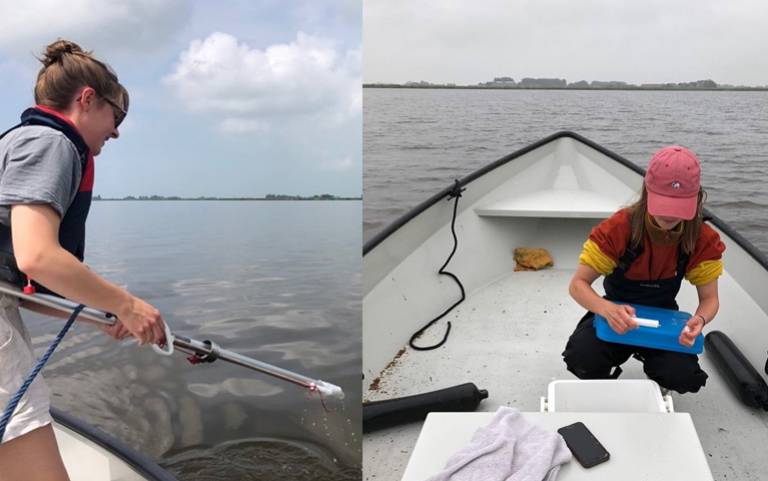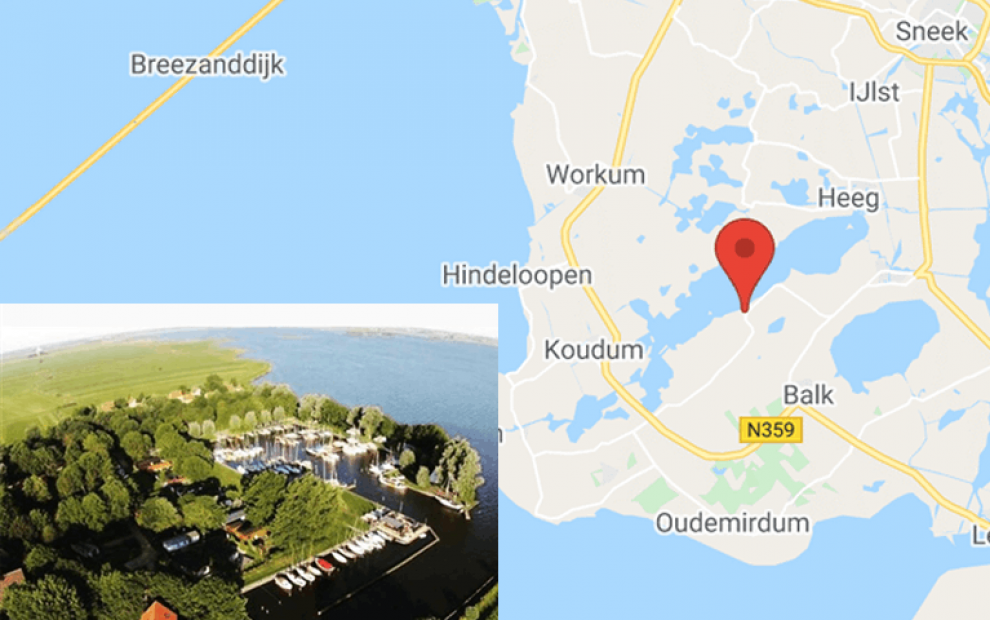Water Quality in the Lakes of Friesland.
6 August 2021
Veerle Troelstra, 4th year Environmental Geoscience student has set out to answer the question about seasonal water quality in this popular tourist destination in Holland as part of her MSci project.

The lakes of Friesland, Holland, are a centre for recreation and water sports; renting a sloop to cruise for a week or two on Fluessen – Heegermeer is a particularly popular pastime. Keeping the water-quality high is a prime concern if the region is to remain attractive for recreation, so how to handle the sewage? Properly, of course, but does everyone play ball or does some sewage just get dumped into the lakes (at night!) because it is so easy to do?

Figure: Location map: The lakes of Friesland in north eastern Holland; Insert:The sloop-hire centre near the village of Elahuizen on Lake Fluesen, Holland.
Veerle Troelstra, our MSci student has set out to answer that question in her MSci project under the supervision of John McArthur, professor of geochemistry. Veerle is sailing the lakes to take water samples for analysis back at UCL.
Veerele writes: "I chose to study Environmental Geoscience at UCL with the hope to gain a better understanding of the driving mechanisms behind some of our most pressing environmental concerns, thereby both furthering our comprehension of our impact on the environment as well as seeing the scope for potential solutions. Friesland (the study area) being my “home-base”, I was very keen to work on this project as I have always wondered whether some part of the progressive deterioration/eutrophication I’ve seen over the years could be attributed to illegal sewage-dumping during the touristic season. On a more spatial scale, the study area is also conveniently divided between properties connected to the sewage system and those using septic tanks. From here I hope to find out if there is a disparity between the two: could septic tanks be the quiet polluters of Friesian lakes?"
In the upcoming autumn term, Veerele will use one of the department’s mass spectrometers to determine the content of chloride and bromide in the samples. The ratio of chloride to bromide is a sensitive indicator of sewage pollution and is able to detect 0.1% contributions, so Veerle will be sampling water just offshore of lake-side villages and around the boating centres to make sure everyone is doing the right thing.
 Close
Close

